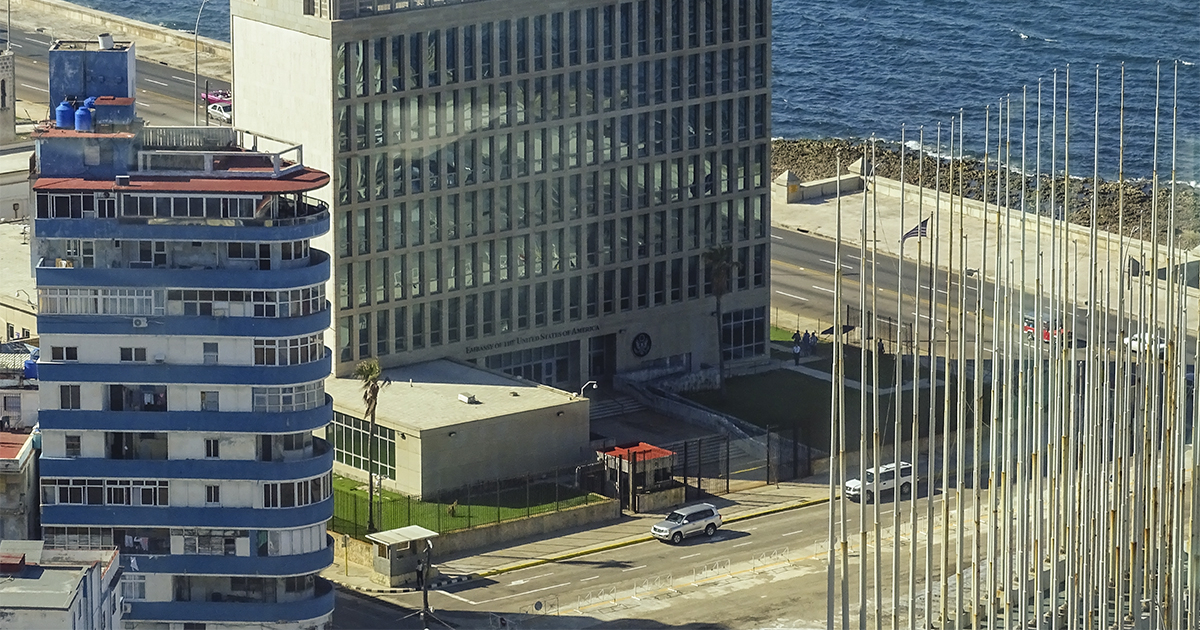This Monday, the U.S. Embassy in Havana began processing certain types of visas for travel to the United States that had not been handled there since 2017. These visas benefit academic, educational, and cultural exchanges, athletes, individuals with extraordinary abilities, or members of religious groups.
Starting August 19, the U.S. consulate in Havana will process visas for temporary workers or trainees (H), exchange visitors (J), intra-company transferees (L), and individuals with extraordinary abilities or achievements (O). The reform also includes visas for athletes, artists, and entertainers (P), participants in international cultural exchange programs (Q), and members of religious denominations performing religious work (R).
It’s important to note that this expansion does not include business visas (B-1) or tourist visas (B-2), which remain unavailable through the U.S. Embassy in Havana.
Mayron Gallardo, an immigration lawyer, explained to Telemundo 51 that those interested in the newly available visas must demonstrate that they do not intend to stay in the United States. “Most of these visas will require a petitioner because many of these visas, like the H visas, are work-related. Even religious visas, while not strictly work visas, also require a petitioner,” added Gallardo. This means the first step must be initiated with USCIS, and once the petition is approved, the applicant will need to undergo a consular interview.
“Many Cubans living in the United States own companies and businesses, so they can file petitions for their relatives to come work in the U.S.,” detailed the lawyer. Although the number of officials at the U.S. Embassy in Havana has doubled over the past two years, it is still insufficient to fully restore all services.
In August 2023, the U.S. government reopened its USCIS office in Cuba after nearly five years of closure. The Department of Homeland Security (DHS) has since been developing a comprehensive communication program to inform the public about its services on the island.
Recently, Kristina Rosales, a spokesperson for the State Department, urged people not to believe in rumors about U.S. immigration laws and to seek reliable information through official channels. “Get accurate and reliable updates directly from us. Learn about the legal pathways to enter the United States safely,” said Rosales. She invited Cubans wishing to emigrate to subscribe to the “Migración USA” WhatsApp channel, where the diplomatic mission shares updated information and precise guidance on their consular services.
Understanding the New Visa Process at the U.S. Embassy in Havana
To help clarify the recent changes in visa processing at the U.S. Embassy in Havana, here are some frequently asked questions and their answers:
Which visas are now being processed at the U.S. Embassy in Havana?
The U.S. Embassy in Havana is now processing visas for temporary workers or trainees (H), exchange visitors (J), intra-company transferees (L), individuals with extraordinary abilities or achievements (O), athletes, artists, entertainers (P), participants in international cultural exchange programs (Q), and members of religious denominations performing religious work (R).
Are business and tourist visas included in the new processing?
No, business visas (B-1) and tourist visas (B-2) are not included in the new processing and remain unavailable through the U.S. Embassy in Havana.
What steps are required to apply for these newly available visas?
Applicants must first have a petition filed with USCIS by a petitioner. Once the petition is approved, the applicant will need to undergo a consular interview at the U.S. Embassy in Havana.
Where can I find reliable information about U.S. immigration laws and visa processes?
For accurate and reliable updates, it is best to consult official channels such as the State Department’s communications or subscribe to the “Migración USA” WhatsApp channel for the latest information and guidance on consular services.

